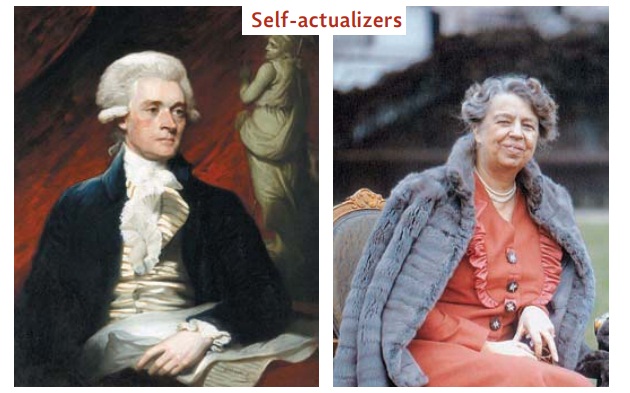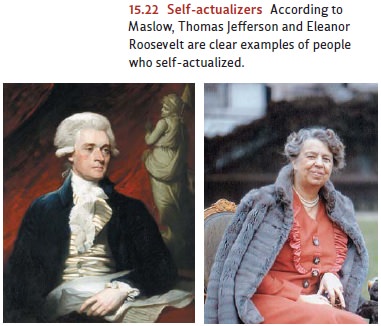Chapter: Psychology: Personality
The Humanistic Approach: Phenomenology and Self-actualization

Phenomenology and Self-actualization
At
the heart of the humanistic approach is a commitment to phenomenology, or understanding a person’s own unique first-person
perspective on his life. Rather than describing how a person typically behaves
(as in the trait perspective), or how a person’s unconscious dynamics operate
(as in the psychodynamic perspective), a proponent of the humanistic
perspective seeks to step into another person’s shoes and experience the world
as he does. The goal is to understand a person’s conscious experience by
under-standing his construal, or
interpretation, of the world around him.
A
second defining feature of the humanistic approach is its conception of human
motivation. As we have seen, drive theories commonly view humans as being
engaged in a never-ending struggle to remove some internal tension or make up
for some deficit. However, a release from anxiety and tension does not account
for everything we strive for. We sometimes seek things for their own sake, as
positive goals in themselves, and Maslow (1968, 1996) insisted that
psychologists consider the full range of motives, not just those that arise
from physical requirements such as food, water, and the like.
These
concerns led Maslow to propose his hierarchy
of needs , in which the lower-order physiological needs are at the bottom
and the striving for self-actualization—realizing
one’s potential to the fullest—is at the top. Butwhat exactly does
self-actualization mean?
Maslow
answered this question largely by presenting case histories of people he and
his collaborators regarded as self-actualized (Figure 15.22). Some of them were
individuals he had personally interviewed (the healthiest 1% of college
students); others were historical figures (e.g., Thomas Jefferson and Eleanor
Roosevelt) whose lives he stud-ied by means of historical documents. As Maslow
(1968, 1970, 1996) saw it, these self-actualizers were all realistically
oriented, accepted themselves and others, were spontaneous, cared more about
the prob-lems they were working on than about themselves, had intimate
rela-tionships with a few people rather than superficial relationships with
many, and had democratic values—all in all, an admirable list of human
qualities.

These
traits, and Maslow’s roll call of self-actualized individuals, might make
self-actualization sound as though it were possible only for the few and the
powerful. Not so. Even though self-actualization is rare, one of the major
themes of humanistic psychol-ogy is that we each have within us the impulse to
self-actualize. Indeed, one of the other major humanists—Carl Rogers
(1902–1987)—regarded this as our one basic motive, and he argued that we often
manage to self-actualize against extraordinary odds, much as a plant improbably
pushes through a crack in concrete. (C. R. Rogers, 1951, 1961).
Related Topics